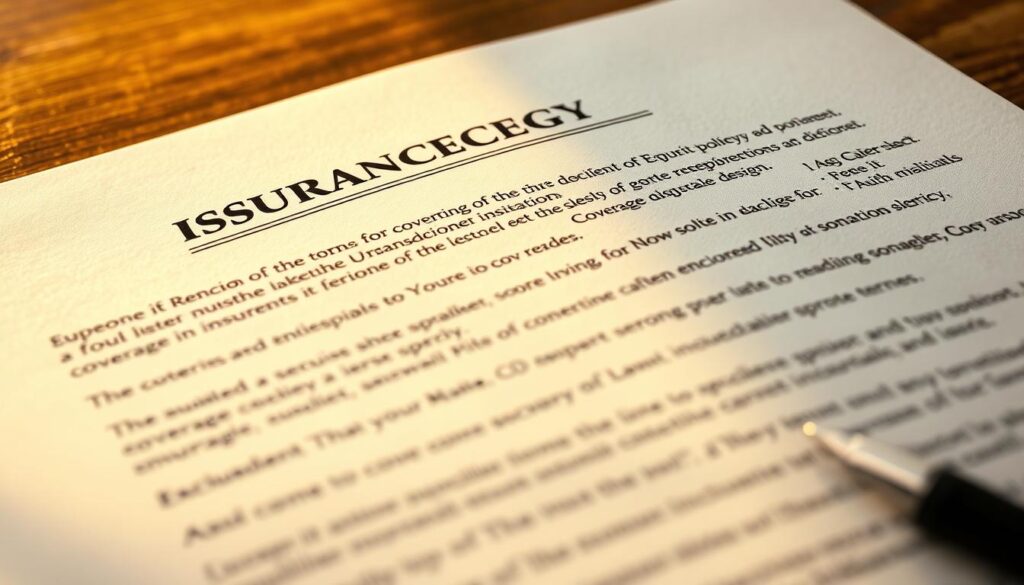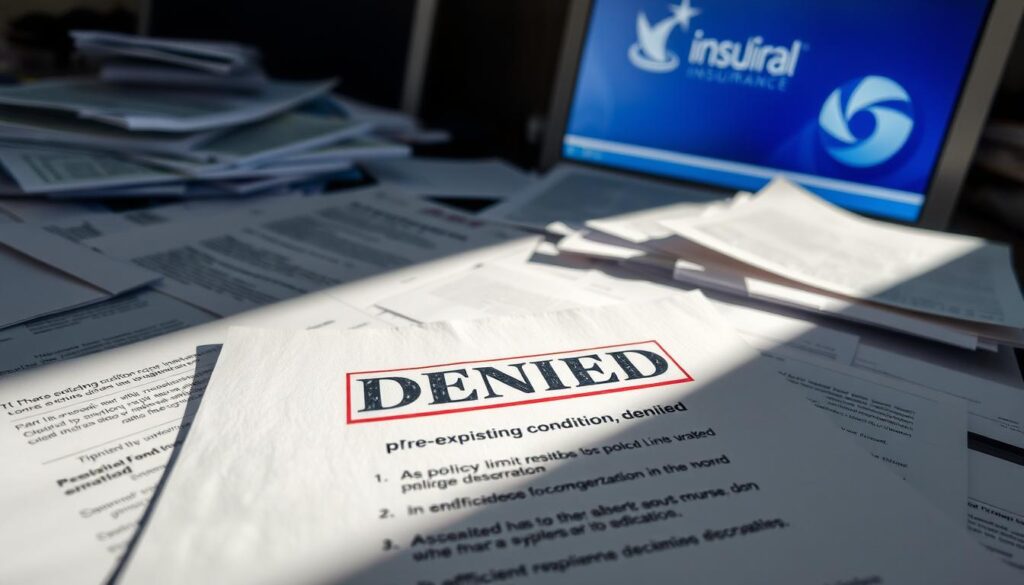Policyholders have the right to challenge their insurance company when claims are mishandled. Unreasonable delays, lowball payouts, or baseless denials are common scenarios where legal action may be necessary. Understanding these rights is crucial for anyone facing such issues.
Before filing a lawsuit, alternatives like mediation or appeals can be explored. These methods often resolve disputes without the need for lengthy court battles. Consulting an experienced attorney ensures the best course of action is taken.
MarketWatch Guides, after reviewing over 130 companies and dedicating 800+ hours to research, provides valuable insights into evaluating insurers. Additionally, Florida-specific laws, including HB-837 reforms, offer further protection against bad faith practices.
Key Takeaways
- Policyholders can legally challenge insurers for mishandled claims.
- Common issues include delays, low payouts, and baseless denials.
- Mediation and appeals are alternatives to lawsuits.
- MarketWatch Guides offers reliable insurer evaluations.
- Florida laws like HB-837 provide additional protections.
- Consulting an attorney is essential before taking legal action.
Understanding Your Rights as a Policyholder
Understanding your rights as a policyholder is essential when dealing with insurance disputes. These rights ensure fair treatment and proper handling of claims. Knowing what your policy covers and when legal action is necessary can make a significant difference.

What Does Your Insurance Policy Cover?
Most insurance policies include several standard coverage types. These often consist of liability, collision, comprehensive, uninsured motorist, and Personal Injury Protection (PIP). Liability coverage handles damages to others in an accident, while collision and comprehensive cover repairs to your vehicle.
Liability-only policies do not include coverage for vehicle repairs. This means policyholders cannot file claims for their own damages under such plans. Reviewing your policy details helps avoid surprises during claims.
When Can You Legally Sue Your Insurance Company?
Legal action may be necessary if an insurer acts in bad faith. Under Florida law, this includes unreasonable delays, failure to investigate claims, or denying valid claims without proper justification. Policyholders can also sue if payouts are below agreed amounts or investigations are excessively drawn out.
Florida’s HB-837 reforms add another layer of protection. Insurers must tender policy limits within 90 days if sufficient evidence is provided. This law also states that negligence alone is no longer enough to prove bad faith claims.
Common Reasons Insurance Companies Deny Claims
Many policyholders face claim denials due to avoidable errors or misunderstandings. These denials can stem from inaccurate information, gaps in coverage, or even bad faith practices. Understanding these reasons helps individuals take proactive steps to avoid disputes.

Inaccurate Information and Claim Errors
Typos, missing documents, or incomplete forms often lead to claim denials. For example, a simple error in the accident report can delay or invalidate a claim. According to data, 48% of denied claims involve such mistakes. Double-checking all submitted information can prevent these issues.
Lack of Coverage and Fraud
Policyholders sometimes discover their claims are denied because of coverage gaps. For instance, comprehensive coverage is required for hail damage, which liability-only policies exclude. Additionally, fraud red flags like staged accidents or exaggerated injuries can lead to denials. Insurers are vigilant about detecting fraudulent activities.
Bad Faith Denial of Claims
Some denials occur due to bad faith practices by insurers. This includes ignoring evidence, refusing communication, or delaying investigations. Florida’s HB-837 reforms require insurers to respond within 90 days if sufficient evidence is provided. However, proving bad faith requires more than just negligence.
For example, the Printy Law Firm highlighted a case where an insurer denied a valid claim after a car accident without justification. Such tactics underscore the importance of understanding your rights and seeking legal advice when necessary.
Steps to Take Before Suing Your Car Insurance Company
Taking the right steps before pursuing legal action can save time and resources. Proper preparation ensures a stronger case and increases the chances of a favorable outcome. Below are essential actions to consider before escalating the matter.

Gathering Documentation and Evidence
Strong cases rely on solid evidence. Start by collecting all relevant documents, including denial letters, policy copies, repair bills, and accident photos. Witness statements and police reports can also strengthen your position.
Organizing these materials helps present a clear and compelling argument. Missing or incomplete information can weaken your case, so double-check everything before submission.
Filing an Appeal with Your Insurance Company
Before initiating a lawsuit, filing an appeal is often a practical step. Structured rebuttals with supporting evidence can overturn denials. Include witness statements, police reports, and any additional documentation that supports your claim.
J.D. Power’s customer experience metrics highlight the importance of insurer responsiveness. A well-prepared appeal increases the likelihood of a fair resolution.
Consulting with a Car Insurance Attorney
An experienced attorney can assess the viability of your case and estimate potential compensation. They provide valuable insights into legal strategies and ensure deadlines are met. Florida’s 4-year statute of limitations for bad faith lawsuits underscores the importance of timely action.
Attorneys also help navigate complex legal processes, maximizing the chances of success. Their expertise ensures you receive fair treatment and compensation for damages and expenses.
“Proper preparation and professional guidance are essential when disputing claim decisions.”
| Step | Key Actions |
|---|---|
| Documentation | Gather denial letters, policy copies, repair bills, and photos. |
| Appeal Process | Submit structured rebuttals with supporting evidence. |
| Legal Consultation | Consult an attorney for case assessment and strategy. |
Alternatives to Suing Your Insurance Company
Resolving disputes without court intervention often benefits both policyholders and insurers. These methods typically resolve issues faster and with less expense than traditional lawsuits. Exploring these options first can lead to satisfactory outcomes for all parties involved.

Claims Mediation and Arbitration
Mediation involves neutral third-party negotiation without binding decisions. This process averages 30-50% faster resolutions than litigation. Policyholders maintain control over the final agreement.
Arbitration results in binding decisions from a neutral arbitrator. While faster than court cases, the outcomes are final. MarketWatch’s top-rated insurers like State Farm often include arbitration clauses in their policies.
Understanding Your Policy Coverage
Reviewing policy terms thoroughly prevents unnecessary disputes. Many denials occur due to misunderstood coverage limitations. For example, uninsured motorist claims require specific policy provisions.
Quadrant Information Services rates insurers on coverage flexibility. Their data helps consumers compare options before purchasing policies. This proactive approach reduces future conflicts.
Exploring Other Legal Avenues
Florida’s “assignment of benefits” doctrine allows third-party claims for personal injury cases. This can provide compensation without direct lawsuits against insurers. HB-837 reforms also protect insurers who make timely partial payments.
For negligence claims, Florida law now requires more than simple oversight to prove bad faith. Consulting an attorney helps navigate these complex personal injury and insurance regulations effectively.
What to Expect When You Sue Your Car Insurance Company
Filing a lawsuit against an insurer involves a structured process with specific steps and timelines. Understanding this process helps policyholders prepare for potential challenges and delays. Legal action can be time-consuming, but knowing what to expect ensures better preparedness.

The Legal Process and Timeline
The legal process typically begins with filing a complaint. This document outlines the policyholder’s grievances and the relief sought. After filing, the case enters the discovery phase, where both parties exchange evidence and information.
Mediation is often attempted to resolve disputes without a trial. If mediation fails, the case proceeds to trial. In Florida, bad faith lawsuits can take 12-24 months to resolve, with some cases, like Berges v. Infinity Ins. Co., lasting up to four years.
Potential Outcomes and Compensation
Successful lawsuits can result in compensation for claim amounts, emotional distress, and other damages. Florida law caps punitive damages at three times the compensatory amount. Severe cases involving injury or prolonged delays may warrant higher awards.
According to data, 70% of mediated cases settle, while only 45% of trials result in favorable outcomes. This highlights the importance of exploring alternatives before pursuing litigation.
Weighing the Pros and Cons of Legal Action
Legal action offers the potential for fair compensation but comes with risks. Prolonged timelines and high legal costs are significant drawbacks. However, for policyholders facing unreasonable delays or denials, a lawsuit may be the only recourse.
Consulting an attorney helps assess the viability of a case. Firms like Printy Law Firm offer free consultations to evaluate claims and provide guidance.
| Phase | Key Actions |
|---|---|
| Complaint Filing | Submit a formal complaint outlining grievances. |
| Discovery | Exchange evidence and information between parties. |
| Mediation | Attempt resolution through neutral negotiation. |
| Trial | Proceed to court if mediation fails. |
Conclusion
Taking legal action against an insurer is a significant decision that requires careful consideration. Lawsuits are viable but demand strong evidence of bad faith practices, such as unreasonable delays or baseless denials. Before escalating to court, policyholders should exhaust alternatives like appeals and mediation.
Florida residents face a higher burden of proof under HB-837 reforms. Proving bad faith now requires more than simple negligence. Consulting a specialized attorney ensures the best course of action and maximizes the chances of a favorable outcome.
For those considering switching providers, MarketWatch’s insurer ratings offer valuable insights. Choosing a reliable insurance company can prevent future disputes and ensure fair treatment. Always seek professional consultation to navigate complex insurance issues effectively.
FAQ
What does an insurance policy typically cover?
An insurance policy generally covers damages or losses specified in the agreement, such as accidents, theft, or liability. It’s essential to review the terms to understand the extent of coverage.
When is it legal to take legal action against an insurer?
Legal action can be pursued if the insurer denies a valid claim, acts in bad faith, or violates the terms of the policy. Consulting an attorney is advisable to assess the situation.
Why do insurers often deny claims?
Claims may be denied due to errors in the application, lack of coverage, suspected fraud, or if the insurer acts in bad faith by unfairly rejecting a legitimate claim.
What steps should be taken before filing a lawsuit?
Gather all relevant documentation, file an appeal with the insurer, and consult a specialized attorney to evaluate the case and explore options.
Are there alternatives to suing an insurer?
Yes, alternatives include mediation, arbitration, or reviewing the policy to ensure the claim aligns with the coverage terms. Legal avenues may also be explored.
What can be expected during a lawsuit against an insurer?
The process involves filing the case, gathering evidence, and attending court hearings. Potential outcomes include compensation or settlement, but the timeline and results vary.
How can bad faith claims be identified?
Bad faith claims occur when an insurer unreasonably denies or delays a valid claim, fails to investigate properly, or offers significantly lower compensation than deserved.
What evidence is crucial for a lawsuit?
Key evidence includes the policy details, correspondence with the insurer, accident reports, medical records, and any documentation supporting the claim.
How does consulting an attorney help?
An attorney can provide legal advice, assess the claim’s validity, negotiate with the insurer, and represent the policyholder in court if necessary.
What are the potential outcomes of suing an insurer?
Outcomes may include receiving compensation for damages, policy reinstatement, or a settlement. However, the process can be lengthy and costly.
